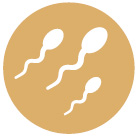Radiotherapy is treatment with high-energy x-rays. High levels of radiation can kill cells or keep them from growing and dividing.
Uses of radiotherapy
The doctor may use radiotherapy alone, or in combination with surgery or chemotherapy. There is no pain or discomfort during the treatment. The patient is asked to be still for several minutes which is difficult for children, so they may need to be sedated for the session.
Types of radiotherapy

- Brachytherapy: Radioactive material is directly inserted into or near the tumor. It is either later removed or left in place. It is administered with needles or small thin tubes. Sometimes the material is left in your body (permanent brachytherapy). In this case, small beads containing the radioactive material are inserted into the tumor and remain for several days or weeks.
- Teletherapy: A beam of radiation is directed at the tumor and once the area of cancer is identified, a small ink tattoo is fixed on the skin over the area so that the radiation beam can be focused on the same spot for each treatment. It is necessary to focus the radiation beam on the cancer cells while shielding nearby healthy tissue from radiation. The patient usually requires several sessions, once a day for 5 to 6 days a week for several weeks.
How can I take care of myself during radiotherapy?

Rest

Healthy Diet

Avoid Wearing
Tight Clothes

Tell Your Doctor About
Medicines You Are Taking Before Treatment

Protect And Take
Care of The Treated Area
Side effects of head and neck radiotherapy

Side Effects of Head And Neck Radiotherapy
Some patients suffer from redness, sensitivity, and dry mouth, difficulty swallowing, change in sense of taste or nausea, and ear pain. You may lose your hair, notice a change in skin texture, and feel a stiffness in your jaw. You must take care of your teeth, gums, mouth and throat.

Side Effects of Chest And Breast Radiotherapy
Trouble swallowing or coughing. Inform your doctor or nurse of these symptoms.

Side Effects of Abdominal And Stomach Radiotherapy
Nausea, vomiting, or diarrhea. Consult your doctor for home remedies that can help alleviate these symptoms.

Side Effects of Pelvic Radiotherapy
If you receive radiation on any part of the pelvis, you may experience one or more side effects that affect the digestive system. Bladder sensitivity may occur, causing you to feel uncomfortable and urinate more often.

Effects of Radiotherapy on Female Fertility
Women are advised against pregnancy during radiotherapy, which may harm the fetus. If you are pregnant, inform your doctor before starting radiotherapy. Your menstrual cycle may stop during pelvic radiotherapy, and the treatment may lead to vaginal itching, burning or dryness. Inform your doctor of these symptoms for relief options.

Effects of Radiotherapy on Male Fertility
Testicular radiotherapy can reduce the number and effectiveness of sperm, but this does not mean that a pregnancy cannot happen. If you want to have a baby, talk to your doctor before starting radiotherapy, and discuss options for keeping your sperm in a designated bank.
Frequently asked questions about radiotherapy
Will I lose my hair because of radiation?
Hair loss only occurs at the site which is being treated. If you are having radiation therapy on your pelvis, you will not lose the hair on your head. But, if you are being treated for a brain tumor, there is a good chance you will experience hair loss. Your hair will grow back after treatment is concluded.
How can I deal with fatigue?
Ask your friends and family for support to help with some challenging tasks. Take short naps throughout the day and get uninterrupted sleep at night.
How can I deal with skin problems?
The treated area may experience redness or sensitivity. Try using very mild soaps, avoid perfumes or scented body lotions, avoid exposure to the sun during treatment and for at least one year after, and avoid tight clothes.
How can I deal with eating problems?
It is vital to stay strong and active during treatment and food is one of the best energy sources. Eat smaller meals and foods rich in vitamins like fruits and veggies.
How can I deal with diarrhea?
Diarrhea may occur after radiation to the abdomen or pelvic area. In this case, consult your doctor for treatment and choose low-residue foods, avoiding fresh fruits, vegetables, and fried foods.
What if I receive radiation after a lumpectomy or mastectomy?
If you receive radiation therapy after a lumpectomy or mastectomy, try to avoid wearing a bra. If your shoulders feel stiff, ask your doctor or nurse about exercises to keep your arms moving freely. You may notice breast soreness and swelling from fluid buildup in the treated area, which will most likely go away within a month or two after you finish radiotherapy.
How can I manage my nausea?
If you experience nausea, do not eat for several hours before your treatment. After treatment, you may want to wait 1 to 2 hours before eating. If the problem persists, ask your doctor about suitable medications.
